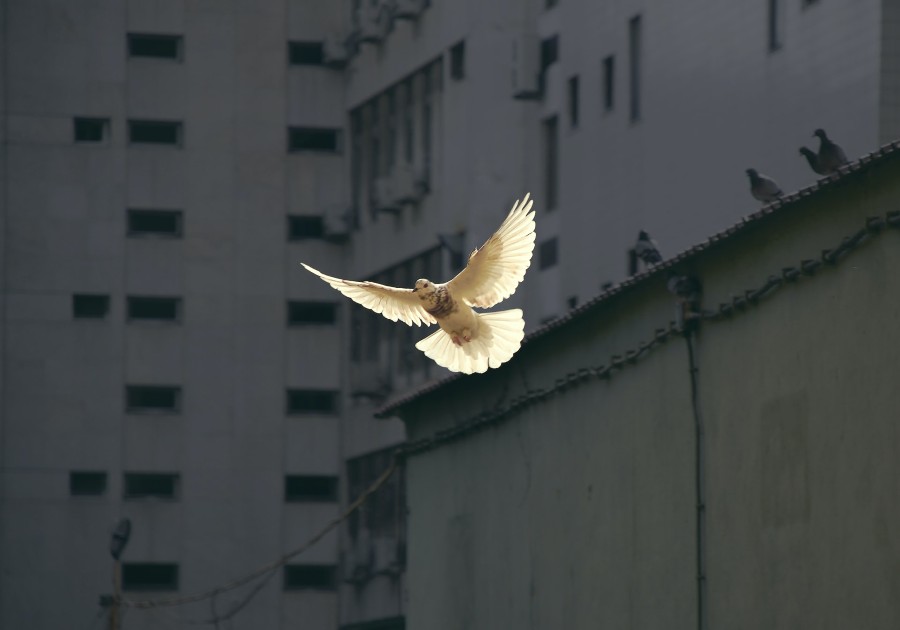
All war is a symptom of man’s failure as a thinking animal.
John Steinbeck
The current conflict in Ukraine has the world on edge. For many, the fact that a major power has invaded a sovereign neighbor in Europe harkens immediately back to the two world wars so brutally fought across the continent and beyond. A photograph from the embattled city of Kharkiv with the color removed is hardly distinguishable from images of civilians fleeing Hitler’s army in World War Two. Another photo compares the Odessa Opera House in 1942 and today.
Odessa Opera House, in 1942 and today. pic.twitter.com/vu4521Ir2V
— KyivPost (@KyivPost) March 7, 2022
For others, the images of decimated cities and bombed out hospitals was a stark reminder of the more recent and ongoing war in Syria. And we might also point to the dire situation in Yemen, begging the international community not to forget those suffering there as warnings of food shortages ripple throughout the world.
If anything good might come of this war, it will be a jolting to wakefulness of the global community about the depths of our interconnectedness and the fragility of civilization. Few are left untouched by the crisis created by war in the immediate term. And none will be untouched by the long-term consequences. As numerous observers have pointed out, this war comes at a crucial time for humanity to begin seriously dealing with the climate crisis.
Unfortunately, not only is the war a distraction for leaders, citizens, and industry, it is a direct and enormous cause of further damage to the environment. “If war wins, climate action loses,” Andrew Sheng writes for The Jakarta Post. “Increased defense expenditure will accelerate energy and nonrenewable material consumption” as well as push up emissions, “thus diverting scarce resources away from climate action.” (The New York Times)
This is beyond the direct impact the war is having on the lives of people in Ukraine and neighboring countries. War brings death and disability to soldiers and civilians alike. It tears apart families and communities. As the spring planting season is set to begin in one of the most fertile and productive areas for grain in the world, we see it disrupting food supplies. Cities are destroyed. Roads, railways, fuel and water pipes are targeted and destroyed. Countless millions of people across Ukraine are internally displaced and three million have left the country for safety. Citizens in some neighboring countries worry that they may be next. Others across the continent are buying potassium iodide pills in fear of nuclear radiation.
The stress of the war also ripples, often silently, around the world. People aren’t sleeping well. Many of the countries that have experienced the worst of the Omicron wave of COVID-19 are still seeing rising anxiety as pandemic worries are replaced by the even greater existential threat of global nuclear war. Simply put, public health has been both acutely diminished in Ukraine and more generally has been diminished the world over. In a 2011 paper, Michael T. Klare, PhD and co-authors argue that human society was entering into a new era of resource war, such as wars fought largely or entirely over oil and natural gas pipelines, and that public health workers and organizations must both prepare for them and raise public awareness about their outcomes. They write:
Declining reserves of petroleum and other resources, population growth, increasing industrialization and modernization of societies, and other factors are increasing the likelihood of petroleum wars and other resource wars. Public health workers can help document the health consequences of resource wars, raise awareness about these consequences, and advocate for policies and programs for minimizing these consequences and for helping to prevent resource wars.
(Klare, et al, 2011)
Such a perspective draws attention to the resource dependence of Europe on Russia. Europe relies on Russia for some 35 per cent of its oil and 40 per cent of its natural gas. In particular, Germany imports more than half of its natural gas from Russia. Natural gas is touted as a cleaner heating fuel than coal and has been a key part of Germany’s pivot away from nuclear power toward a clean-energy future. Nonetheless, the current status has left Europe dependent on Russian resources.
This twofold toll on the globe—to the mental and physical health of people everywhere and to the ongoing struggle against climate change—offers a clear opportunity to reassert our Buddhist practice. In particular, we can return to the ideas and practices that have helped us through our most difficult times and to offer those to others. Perhaps a Pure Land sutra. Perhaps the peace of a monastery or the chanting of a mantra. As the world struggles in ways visible and invisible to us, what gifts of the Dharma might we give?
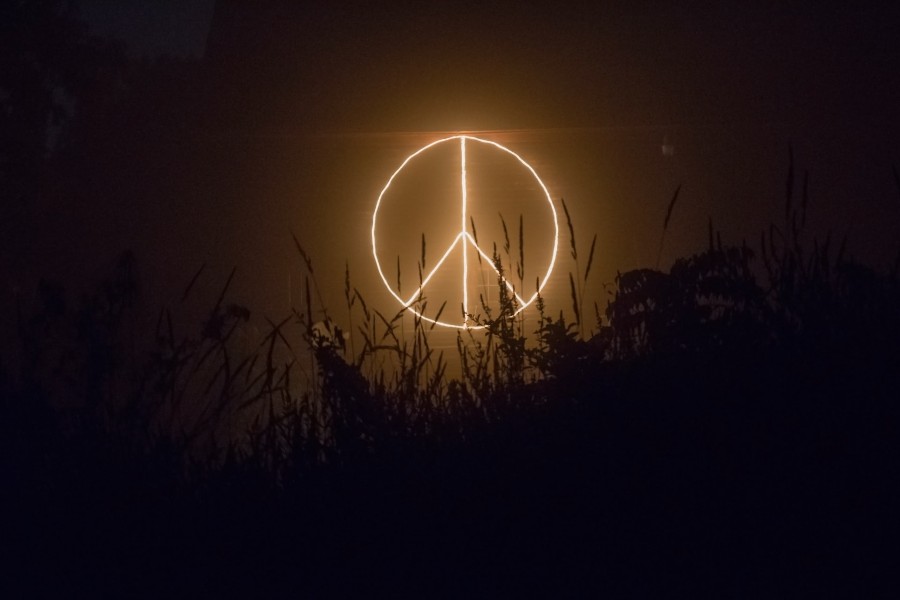
Second, the effects of the war on the climate might not be felt directly for years, if at all. But the complex ways that dependence on oil and gas are highlighted in the conflict should lead us to continue to make efforts to live sustainably and contribute in our own ways to a green energy future. In a world beset by feuding and chaos, it is worthwhile to remember that the Buddha offered his Dharma as a path “against the stream” of society.
While few Buddhists today drop out altogether, we can find in the triple refuge a source of stability and comfort away from disasters and crises. Stepping out, we do not add to the harm. We gather our own clarity, opening ourselves to the tradition’s 2,500 years of wisdom and compassion. And we can re-engage with the world in ways that offer renewed peace and hope. As global citizens, increasingly aware of our interconnectedness, what actions, small and large, might we make to reduce suffering in the world?
References
Klare, Michael T. et al. 2011. “The Public Health Implications of Resource Wars” American Journal of Public Health. v.101 (9). https://www.ncbi.nlm.nih.gov/pmc/articles/PMC3154227/
Read more
If war wins, climate action loses (The Island)
What the Ukraine War Means for the Future of Climate Change (The New York Times)
Obsessed? Frightened? Wakeful? War in Ukraine sparks return of doomscrolling (The Guardian)
War in Ukraine Does Not Diminish NATO’s Need to Act on Climate, Report Says (Scientific American)
UN, Agro Experts: Russia’s War on Ukraine Will Cause Global Food Crisis (Kyiv Post)
Related features from BDG
Subduing War, Pestilence, Evil, and Fear – The Vajrayana Way
Global Systemic Crisis and Buddhism: Toward a Change of Paradigm
Buddhistdoor View: The Dharma of Unemployment
Buddhistdoor View: Embracing Fear and Uncertainty
Buddhistdoor View: Reconciling the Fractured Self of Nationhood
A Call for Meditation in Action on Climate Change




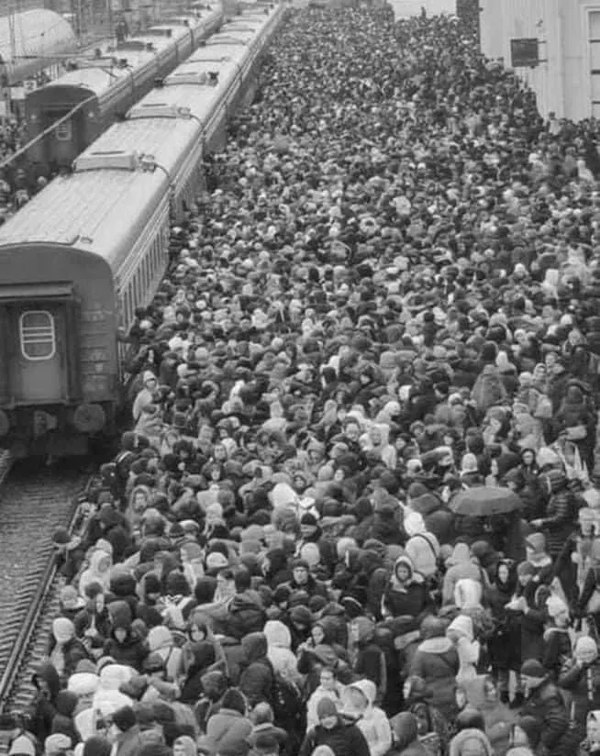

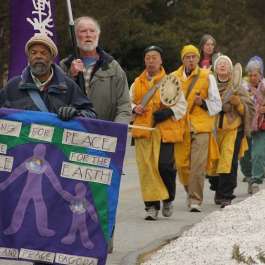
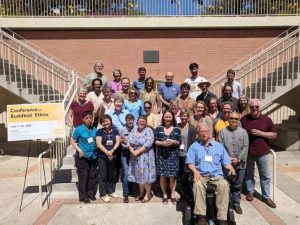


As a Buddhist, I am in complete agreement with the sentiments of this article. However, as a scholar who for many years has studied the way those calling themselves Buddhists have (mis)used the Buddha Dharma to encourage and promote killing, I hope my fellow Buddhists will take this opportunity to reflect on the ways that both Buddhist practice and doctrine have been used to promote warfare, often in the name of compassion. Without acknowledging and repenting the many centuries of Buddhist promotion of violence and warfare, we will not be in a position to share the Buddha Dharma with honesty.